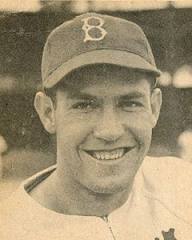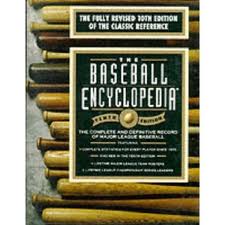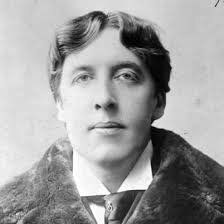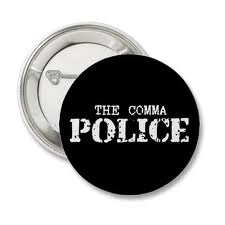At one juncture in his autobiography, Nice Guys Finish Last, legendary baseball player and manager Leo Durocher wrote the following:
“[He] might have been the best ballplayer I ever saw.”
High praise indeed from a man who saw, firsthand, many of the game’s all-time greats. Who was he talking about? Babe Ruth? Willie Mays? Ty Cobb? Joe DiMaggio?
No. He was talking about Pete Reiser.
Pete who?
Durocher goes on to say about Reiser,
“He had more power than Willie [Mays]. . . . Mays was fast, but Reiser was faster. Name whoever you want to, and Pete Reiser was faster. Willie Mays had everything. Pete Reiser had everything but luck.”
Call it what you will–luck, fate, poor decisions, destiny . . . but Pete Reiser’s career is one of those classic “what-if” stories. What might have been if only . . . ? Then again, what might have been is clear. Because, from all accounts, Pete Reiser was the greatest natural talent ever to step foot on a baseball diamond.
In 1941, his first full season in the Majors with the old Brooklyn Dodgers, Reiser, then twenty-two, batted .343 with a league-leading 39 doubles, 17 triples, and 117 runs scored.
His .343 average was good enough to win the National League batting crown. He was the swiftest player in the league, a brilliant outfielder with a powerful throwing arm. He was such an accomplished outfielder, in fact, that opposing players would stop what they were doing to watch him catch fly balls and then fire them back into the infield during practice drills. The future beckoned, surely rich with promise, World Series triumphs, awards, and, ultimately, an invitation to the Baseball Hall of Fame.
It was not to be.
When he played center field, Reiser would crouch into his defensive stance just before the pitch and think to himself, “Hit it to me. Hit it to me.” He wanted to make every catch, be in on every play. He was the best athlete on the field, and he knew it. Everyone did.
Not only did he play the game with grace, power, and supreme skill. He played hard, and was known throughout the league for his diving, acrobatic catches. This never-say-die attitude, however, became his undoing.
Pete Reiser was carted off the field eleven times in his too-short playing career. Determined to get to every ball hit anywhere close to center field, he had a bad habit of racing into outfield walls. He was even given his last rites once at the stadium.
The play that effectively ended Reiser’s career occurred in 1942. Trying to flag down a line drive, Reiser slammed into the concrete center-field wall, head-first, at full speed. Somehow, he managed to get up, retrieve the ball, and throw it back into the infield, before collapsing. He suffered a severe concussion and a fractured skull. Doctors told him not to play the remainder of the season. But, four days later, upon his release from the hospital, Reiser suited up, and played.
He was never the same. He played several more seasons, and had a couple of decent years, but he was a shell of his former self. His career statistics are mediocre, easily ignored when flipping through the pages of baseball history. What could have, and probably should have been the greatest player in the history of the game is now a forgotten anecdote, a small annotation in the bibliography of the twentieth century.
In many ways, it can be stated that Pete Reiser’s career was cut short because he tried too hard. At first blush, such a statement seems ludicrous. How can anyone try too hard? Aren’t we supposed to try hard?
But Pete Reiser was reckless when he should have been wise. An admirable trait, perhaps, but a self-defeating one nonetheless.
***************
Oscar Wilde once famously stated: “I was working on the proof of one of my poems all the morning, and took out a comma. In the afternoon I put it back again.”
I think any writer can relate to this. I know when I wrote The Eye-Dancers, there were days when I would agonize over the flow of one lone paragraph, or the wording of a single sentence. I would sometimes obsess over a word choice, the beat and rhythm of a sentence, the way one paragraph led into another.
This is not a bad thing, of course. Proofreading and copy editing your work is essential. But it can go too far. At some point, somehow, you have to be able to turn the page, literally, and say, “This page is done. This chapter is done. This story is done.”
No piece of writing is perfect. We often say, “Make your writing as perfect as it can be before submitting it for publication”–but sometimes we overlook those four crucial words–“as it can be.” Not “perfect.” But “as perfect as it can be.” Granted, we can spend a day as Oscar Wilde did. We can hem and haw over every verb, every exclamation point, every semicolon. We can spend decades editing our work-in-progress. But eventually, you reach a point of diminishing returns, and your work can then actually suffer due to overwork and fatigue.
It is the hardest thing for any writer (we are usually our own worst critics) to state: “It’s finished! My story is ready.” But these are words we have to be able to say. When you know, objectively, that you have put as much effort into a story as you reasonably can, it is finished. Will there be flaws? Absolutely. Hamlet has flaws. The Great Gatsby is imperfect. Everything is. But–will it be well crafted? Will it resonate and engage readers? Move them, make them want to keep reading, make them care? These are the questions that matter.
Working hard is one thing. Taking the time to edit and re-edit and re-edit again is essential. Generally speaking, when a story seems finished, it isn’t. There is still work to do, mistakes to clean up, inconsistencies in character and plot to correct. Settling for anything less, looking for shortcuts and end-arounds will sabotage the story and rob it of its potential. No arguments there.
But if you find yourself debating the merits of a comma all morning long . . .
. . . or sprinting headlong toward a concrete wall, there really is only one thing left to do . . .
Thanks so much for reading!
–Mike




































